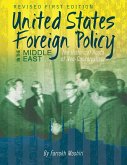
Gebundenes Buch
28. Juni 2018
Taylor & Francis
| Broschiertes Buch | 50,99 € | |
| eBook, ePUB | 31,95 € | |
| eBook, PDF | 31,95 € |

eBook, ePUB
4. März 2019
Taylor & Francis eBooks
Broschiertes Buch
30. Januar 1981
Routledge
eBook, PDF
27. April 2018
Taylor & Francis eBooks
eBook, ePUB
27. April 2018
Taylor & Francis eBooks
Ähnliche Artikel

Gebundenes Buch
Eastern Ukraine in the Post-Soviet Space
27. Dezember 2018
Taylor & Francis Ltd (Sales)


Gebundenes Buch
13. November 2015
Cognella Academic Publishing

Broschiertes Buch
The Historical Roots of Neo-Conservatism
13. November 2015
Cognella Academic Publishing

Gebundenes Buch
Documents and Commentary, 1900-2000
28. Februar 2001
Taylor & Francis




Ähnlichkeitssuche: Fact®Finder von OMIKRON
